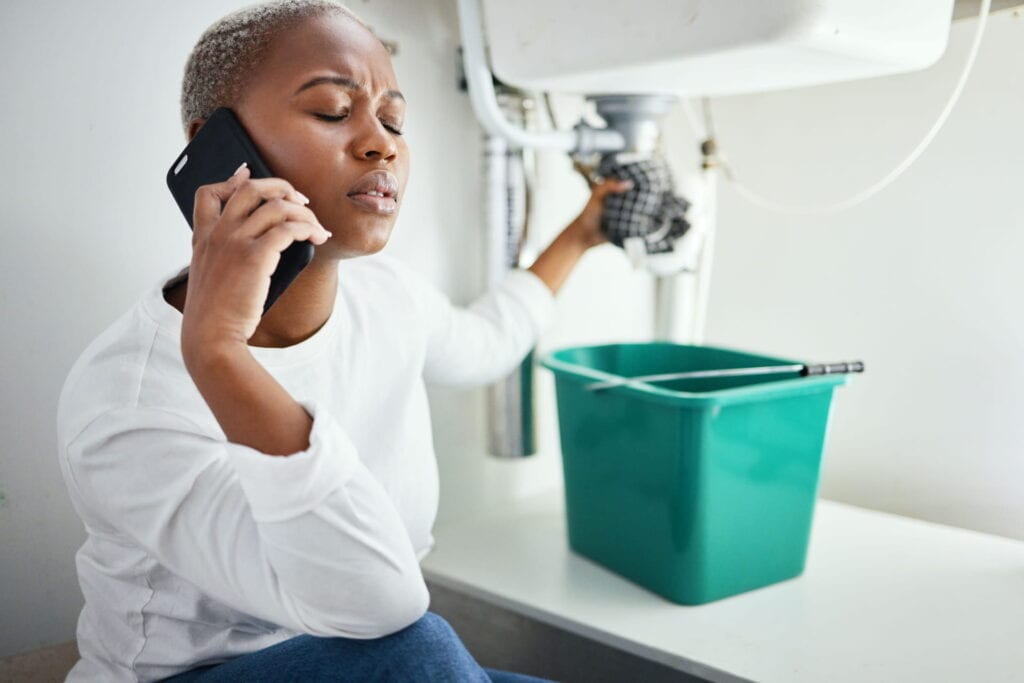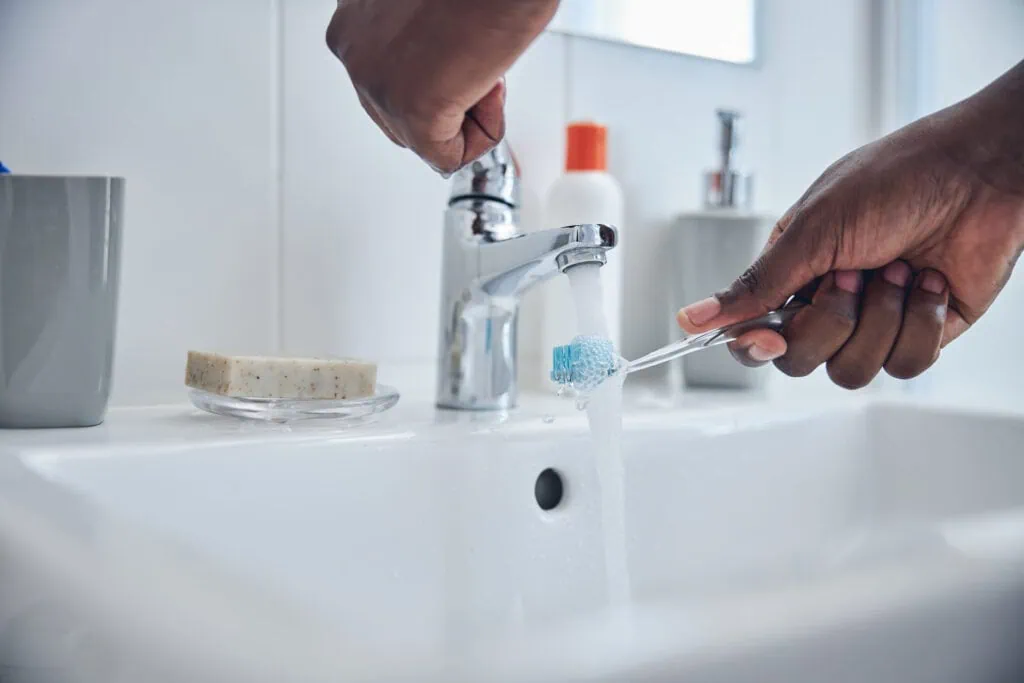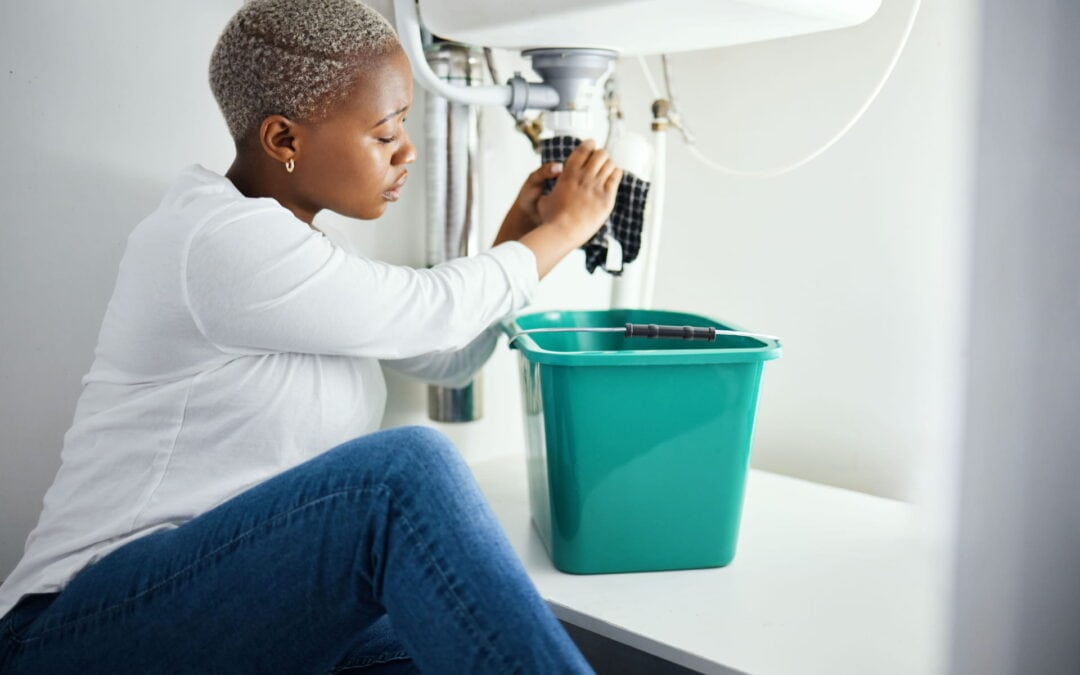Plumbing emergencies can strike unexpectedly and leave homeowners in a panic. Whether it’s a burst pipe, a flooded basement, or a malfunctioning water heater, knowing how to react quickly can prevent further damage. Immediate action is crucial when dealing with a plumbing crisis because even a few minutes can make a significant difference. That’s why being prepared and understanding what steps to take is essential to minimizing the effects of a plumbing emergency.
Homeowners should always have a plan for managing plumbing emergencies. This plan includes knowing where the main water shut-off valve is located, having essential tools on hand, and knowing when to call a professional plumber for help. Whether it’s a small leak or a major water issue, acting swiftly can save time, money, and stress.
- Know where the main water shut-off valve is located.
- Have a set of basic plumbing tools available.
- Contact a licensed plumber for emergencies that require expert help.
Plumbing Emergencies New Orleans Homeowners Face
Every homeowner, at some point, will face a plumbing emergency. In fact, a common scenario involves waking up to the sound of running water only to discover a burst pipe has flooded the kitchen overnight. That’s not the time to panic; that’s the time to act. Homeowners across New Orleans deal with everything from minor leaks to significant water damage caused by a faulty pipe or water heater malfunction.
Some of the most common emergencies include:
- Burst pipes that can lead to severe water damage.
- Sewer backups, which can cause significant health hazards.
- Water heater malfunctions that leave a home without hot water.
Immediate responses in these situations can prevent costly repairs and major inconvenience.
- Contact a plumber when dealing with a burst pipe.
- Use a plunger or drain snake to clear small clogs.
- Replace old pipes to prevent frequent bursts or leaks.
How to Shut Off Water During Plumbing Emergencies
When water is pouring uncontrollably, knowing how to shut off the water supply is the most important step. This should be one of the first things every homeowner learns when they move into their house. Not knowing where the main shut-off valve is can make a bad situation worse. A quick shut-off can save you from further damage, whether the issue is a leak, a burst pipe, or an overflowing toilet.
The main shut-off valve is typically located in a basement, crawlspace, or near the street. Shutting off the water in the house can stop leaks and prevent further damage until a plumber arrives. Make sure everyone in the household knows how to turn off the water supply in case of an emergency.
- Locate your main water shut-off valve before an emergency strikes.
- Turn the valve clockwise to cut off the water supply.
- Keep a wrench nearby if your shut-off valve requires one to turn.
Why You Should Call Professional Plumbers in New Orleans
While some plumbing issues can be handled with DIY solutions, there are times when the expertise of a licensed plumber is absolutely necessary. Professional plumbers possess the tools, skills, and experience to resolve complex plumbing problems, minimizing further damage and ensuring the problem is properly fixed. An attempt to fix a significant plumbing issue without the right expertise can lead to a bigger disaster.
Professional plumbers are well-equipped to handle the city’s unique plumbing challenges, from dealing with older infrastructure to addressing common flood-related issues. Calling a professional plumber not only ensures the repair is done right but also provides peace of mind.
- Avoid DIY repairs for serious issues like burst pipes or sewer backups.
- Professional plumbers can identify underlying issues homeowners may miss.
- Hiring a licensed plumber ensures compliance with local building codes.

How to Handle Burst Pipes Before Plumbers Arrive
A burst pipe can cause water to flood the area and lead to extensive damage to walls, floors, and belongings. If you’re dealing with a burst pipe, time is of the essence. The first thing to do is shut off the water at the main shut-off valve to stop the flow. Once the water is off, it’s important to contain the water by using towels or buckets to catch any remaining water that’s leaking.
While waiting for a plumber, it’s important to minimize damage by drying the area as much as possible and moving valuables out of harm’s way. This will help reduce the risk of mold and further structural damage.
- Shut off the main water supply immediately.
- Use towels, buckets, or wet/dry vacs to clean up standing water.
- Move furniture and valuables away from the affected area to prevent damage.
Steps to Take for Clogged Drains in Emergency Situations
Clogged drains are a common plumbing issue that can quickly escalate if not addressed properly. While a minor clog may seem like a simple fix, severe clogs can cause backups and damage to plumbing systems. For smaller clogs, a plunger or drain snake can often solve the problem, but when these methods fail, it’s time to call a plumber.
Persistent or recurring clogs may indicate a more significant issue, such as tree root intrusion or a collapsed pipe. In these cases, a professional plumber is essential to prevent further damage and restore normal function.
- Use a plunger to clear minor clogs.
- A drain snake can help break up more stubborn blockages.
- Call a plumber if clogs persist or multiple drains are affected.
Avoiding Future Plumbing Emergencies with Regular Maintenance
Plumbing emergencies often arise due to neglected maintenance. Many issues, such as leaks and clogs, can be avoided through regular inspections and preventative measures. Scheduling routine maintenance with a professional plumber can help identify and fix small issues before they escalate into emergencies.
Homeowners should also be mindful of what goes down their drains. Items like grease, coffee grounds, and hygiene products should never be flushed or washed down the sink as they can cause significant clogs.
- Schedule annual plumbing inspections to catch issues early.
- Avoid flushing anything other than toilet paper down the toilet.
- Use drain covers to prevent hair and debris from clogging pipes.

Key Takeaways for Dealing with Plumbing Emergencies New Orleans
Effective management of plumbing emergencies can minimize damage and save time and money. Knowing the common emergencies, how to shut off the water, and when to call a professional plumber are essential steps every homeowner should take. Regular maintenance and vigilance in avoiding common causes of clogs can prevent many emergencies before they happen.
- Understand common plumbing emergencies and how to manage them.
- Learn where your main water shut-off valve is and use it when necessary.
- Call a licensed plumber for serious plumbing issues or persistent problems.
Frequently Asked Questions
- What should I do if my pipes burst while I’m away?
Shut off the main water supply as soon as you return. Dry the area and call a plumber immediately to assess the damage. - Can I fix a clogged drain myself?
Yes, for minor clogs, a plunger or drain snake can be effective. For more severe or recurring clogs, contact a professional plumber. - How often should I have my plumbing inspected?
It’s recommended to schedule an annual plumbing inspection to catch potential issues early and prevent emergencies. - Is it safe to attempt DIY repairs for plumbing issues?
Minor repairs can be done by homeowners, but larger issues, like burst pipes or sewer backups, should be left to professionals to avoid further damage. - What are the signs of a serious plumbing emergency?
Signs include water damage, foul odors from drains, a sudden drop in water pressure, or multiple clogged drains in the home.

